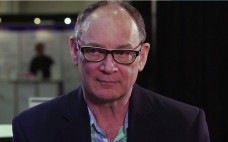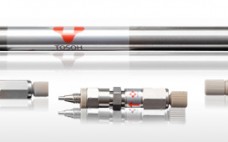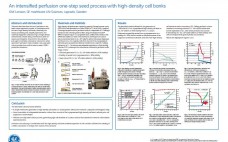This webcast features: Dr. Andreas Anton, Director Bioprocess Development and Dr. Sebastian Schuck, Senior Manager Business Development, Wacker Biotech While WACKER’s own technology ESETEC® has proven highly efficient in producing soluble proteins and antibody fragments via secretion, poorly soluble substances form aggregated inclusion bodies within the cell, which contain incorrectly and/or incompletely folded target proteins. Recently Wacker Biotech introduced FOLDTEC®, its novel refolding technology for bioengineered pharmaceutical proteins. With this new technology, biopharmaceuticals that tend to aggregate can be efficiently…
Sponsored Content
Downstream Processing – Interview with Thomas C. Ransohoff
BioProcess International editor in chief Anne Montgomery interviewed Thomas C. Ransohoff, vice president and principal consultant, BioProcess Technology Consultants, at the BPI Conference and Exposition in Boston, MA, in October 2015. Sponsored by Click here to view the other videos in this series.
Downstream Processing – Interview with Pete Gagnon
BioProcess International editor in chief Anne Montgomery spoke with Pete Gagnon, Group Manager, Downstream Processing, Bioprocessing Technology Institute, Singapore, at the BioProcess International Conference and Exposition in Boston, MA, October 2015. Sponsored by Click here to view the other videos in this series.
Downstream Processing – Interview with Giorgio Carta
BioProcess International editor in chief, Anne Montgomery, interviewed Giorgio Carta, Lawrence R. Quarles Professor, Department of Chemical Engineering, University of Virginia at the BioProcess International Conference and Exposition in Boston, MA, in October 2015. Sponsored by Click here to view the other videos in this series.
Increased Monoclonal Antibody Resolution with TSKgel® UP-SW3000 Columns
The antibody therapeutics market is enjoying high growth rates, the major areas of therapeutic application being cancer and immune/inflammation-related disorders including arthritis and multiple sclerosis. In 2013, six of the top ten best-selling global drug brands were monoclonal antibodies (mAbs) and more than 400 mAbs were in clinical trials. The characterization of these complex biomolecules is a major challenge in process monitoring and quality control. The main product characteristics to be monitored are aggregate and fragment content, glycosylation pattern and…
Downstream Processing – Interview with Dr. Carsten VoĂź
BioProcess International editor in chief Anne Montgomery spoke with Dr. Carsten VoĂź, application specialist, Process Chromatography, Bio-Rad Laboratories GmbH at the BioProcess International Conference and Exposition in Boston, MA, October 2015. Sponsored by Click here to view the other videos in this series.
A Fresh Approach to Process and Cost Efficiencies in Early Clinical and Biosimilars Production
This poster will introduce Praesto™ AC protein A resin and ProcessReady pre-packed columns from Purolite. Platform processes for MAbs manufacturing have long been used to save time and costs. The use of highly productive, cost- effective resins in such platforms can magnify these savings, and the addition of ready-to use formats can further enhance process efficiencies. Our approach is to maximize these efficiencies and cost savings in early clinical-phase production and in the manufacture of biosimilars by using stage-appropriate materials…
CryoPod™ Carrier: Standardized Portable Cryogenic Handling of Cellular Therapies
Temperature control during sourcing, manufacturing, and delivery of cell therapies is crucial, as fluctuations can affect viability and function of the cells, and potentially, the overall efficacy and safety of the therapeutic product. In many cell therapy workflows, source cells arrive cryopreserved at LN2 temperatures (-150 to -196 °C) and post-manufacturing, cells are again cryopreserved and stored in vapor- or liquid phase LN2 prior to their use in the clinic. In either case, containers filled with dry ice (-50 to…
Efficient Optimization of CHO Cell Culture Medium and Feed for Increased Antibody Production
Traditional medium optimization strategies are labor intensive, costly, and time consuming. In this project, high-throughput screening technology was adopted along with statistical design to reduce costs and decrease time for optimizing culture conditions for maximized antibody production from a custom Chinese hamster ovary (CHO) cell clone. The presented work includes two phases: phase 1 for basal medium optimization and phase 2 for feed optimization. Phase 1 and phase 2 each have two rounds. A DoE screening methodology was used to…
An Intensified Perfusion One-Step Process with High-Density Cell Banks
Seed culture expansion is commonly performed in several consecutive batch cultures. Starting from a cryopreserved cell stock, the initial culture expansion is typically performed in shake flasks, while the final steps are performed, at greater scales, in bioreactor vessels. Such a procedure is time-consuming and labor intensive with multiple steps that introduce risk for mishandling and contamination. This work describes how the use of perfusion in the seed culture expansion process, in combination with the use of high-density cell banks,…










